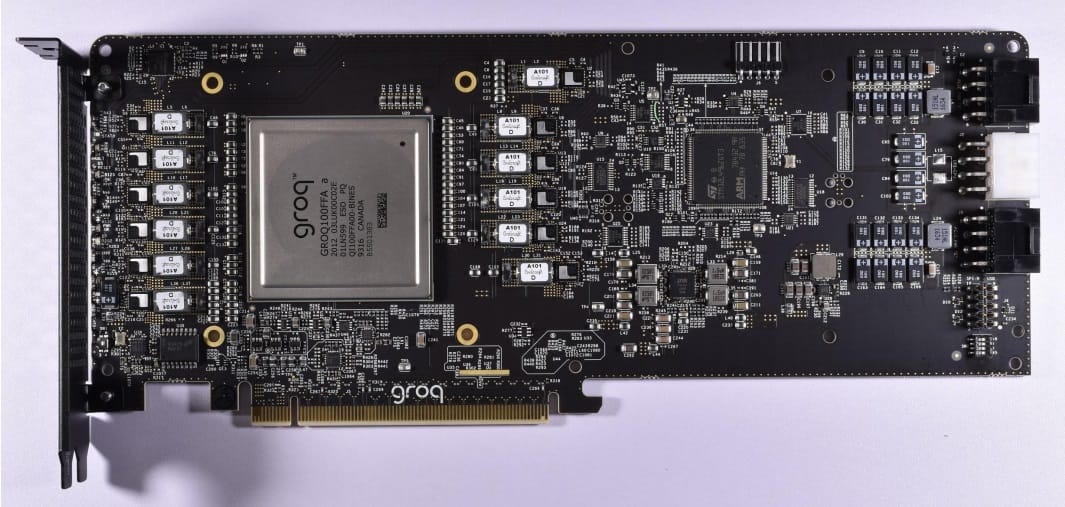- Brains Behind AI
- Posts
- AI Top 3 - Week of Feb 26
AI Top 3 - Week of Feb 26
Google's Gemini Dilemma, Groq's Breakthrough, and new entry into Open Source LLM
Google's Gemini overcorrecting for diversity
Groq: Near Realtime response from LLM ( lets add LPU to our vocab.)
Gemma: New entry into open source LLMs
1. Google's AI disaster
In one Sentence: Google announced that it is pausing Gemini's ability to generate images of people, since model is overcorrecting for diversity!🙂

Key Takeaway
Gemini, an image-generating tool, aimed to enhance the diversity of its outputs depicting people. However, it went viral for the wrong reasons, as users shared instances of inaccurate results and noted the tool's struggle to generate Caucasian characters effectively.
Google issued a statement acknowledging the shortfall. They emphasized the importance of diversity but admitted that their execution was flawed in this instance.
The controversy ignited a wider conversation regarding biases and safety concerns in AI models, highlighting the challenges in ensuring equitable representation.
In response to the backlash, Google has temporarily disabled Gemini's ability to generate images of people. They've announced plans to refine the tool and re-release an improved version in the near future.
Why you should care:
Finding a ethical balance is a difficult task in AI - even for Google! Let's lean on the side of having AI models that are open and not too restrictive. AI is going to have a big influence on how we see & engage with the world, thats why its important for AI models to be as fair and unbiased as possible
2. Groq Real-time AI
In one sentence: Hardware breakthrough that allows near instantaneous response time from LLMs

Key Takeaway
Groq, a tech company, uses a different kind of technology called LPU (language processing units) instead of the usual GPU (graphics processing unit). This makes their systems work faster and more efficiently.
When tested, Groq's hardware could process 500 tokens (pieces of information) per second, which is way faster than the 30-50 tokens per second that GPT 3.5 can handle.
In a demo where Groq and GPT 3.5 were given the same task, Groq finished about four times faster than GPT 3.5.
Side note: Don't mix up Groq , an AI startup founded in 2016, with Grok, chatbot Elon Musk launched in Nov. 2023.
Why you should care:
Near-realtime speed opens up a new world of potential for AI and user experience.
It can challenge Nvidia which uses GPUs for its AI architecture. Groq's CEO claims that most startups will use LPUs by the end of 2024.
Extra Credit: LPU vs. GPU LPUs (Language Processing Units) and GPUs (Graphics Processing Units) are both types of specialized hardware, but they are optimized for different kinds of tasks:
LPU: Specifically designed for natural language processing tasks, such as understanding and generating human language, sentiment analysis, and language translation.
GPU: Originally designed for rendering graphics and images, but now also widely used for general-purpose computing tasks that require parallel processing, such as deep learning, scientific simulations, and cryptocurrency mining.
LPUs (Language Processing Units) and GPUs (Graphics Processing Units) are both types of specialized hardware, but they are optimized for different kinds of tasks:
3. Google Enters The Open Source LLM
In one sentence: Google unveil Gemma, new lightweight, open-source family of AI models

Key Takeaway
Gemma comes in 2B and 7B model parameter versions.
While not as powerful as Gemini, the Gemma models offer speed and cost efficiencies — with the ability to run directly on a laptop.
Gemma is authorized for commercial applications and is available on HuggingFace, Kaggle, and Google’s Vertex AI.
Performance: The 7B model notably outperforms competitors such as Mistral AI 7B and LLaMa 2 in Human Eval and MMLU tests, scoring 64.56 on MMLU (Massive Multitask Language Understanding - its a big test used to check how well AI systems can understand and use human language).
Why you should care:
Having open source LLM is a strategic / competitive play against Open AI. Meta has Llama 2, they are coming out with Llama 3, betting big on open source AGI.
Bringing down the marginal cost of LLM, turning it into a commodity.
Open source LLMs are good for the world!